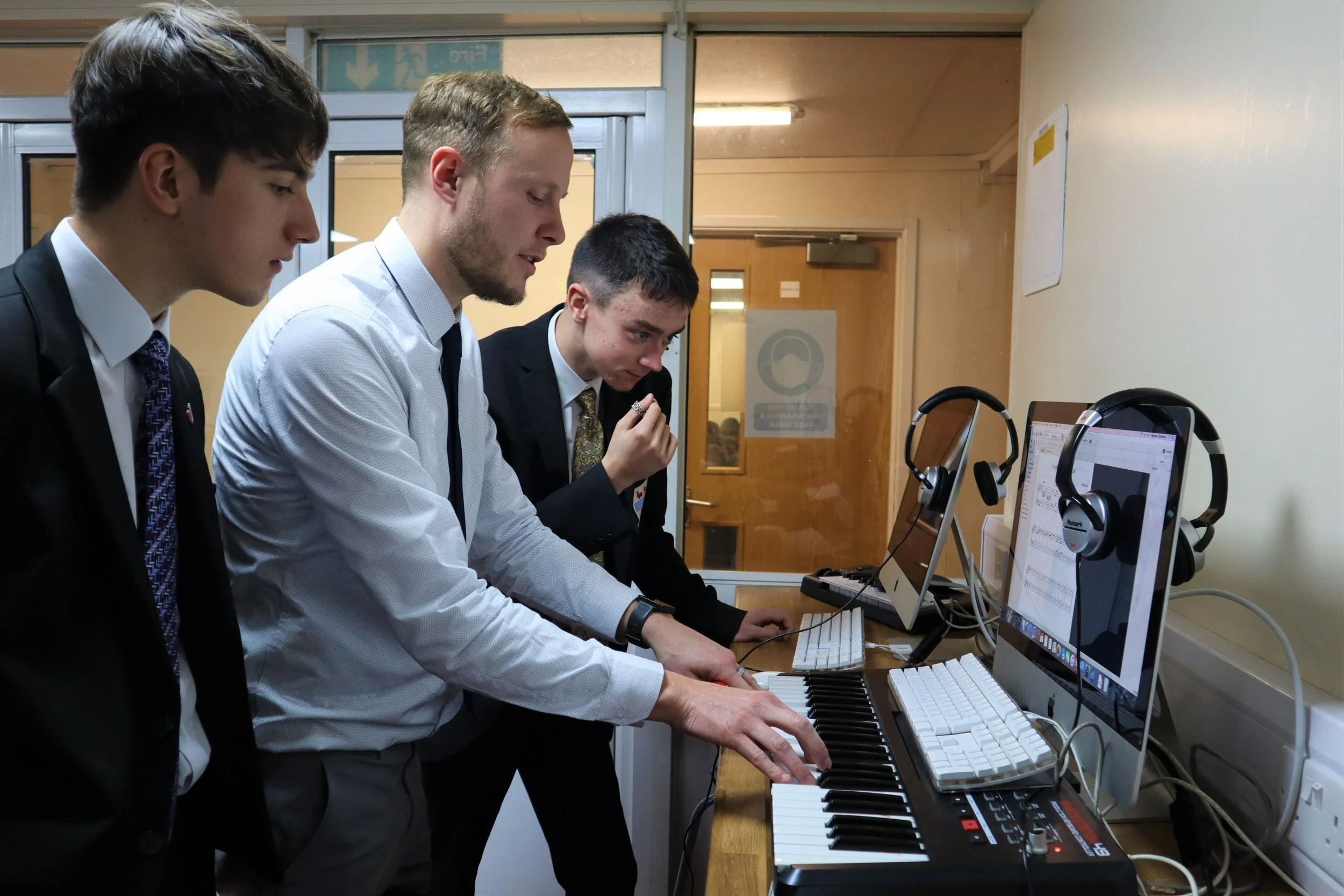SIXTH FORM
AS/A-Level Music
Course Entry Requirements:
Students who wish to take this course must be able to perform to grade 4 standard or equivalent on their instrument or voice. Grade 6 at GCSE is preferable. Students who have not studied music at GCSE will be considered on a case-by-case basis. If you are unsure, come and ask!
General Course Description:
A Level music develops a vast range of creative and analytical skills. from performance and presentation, to essay writing and mathematical skills in music theory. This makes music a subject that is highly regarded by universities and employers. The course is tailored to the individual's strengths in composition and performance in particular.
A Level music develops a vast range of creative and analytical skills. from performance and presentation, to essay writing and mathematical skills in music theory. This makes music a subject that is highly regarded by universities and employers. The course is tailored to the individual's strengths in composition and performance
Performing
These units are externally assessed by an examiner who will observe a video recorded recital performance. You will perform as a soloist or in a group (minimum grade 4 standard). Students at A2 can opt for performance as a focus area and complete a 9 minute recital as opposed to a 6 minute recital.
Composing
At AS, a composition to a learner-defined brief and a composition in response to an exam board set brief will be completed. At A2, students will undertake a similar program but have the option of choosing composition as a focus area; this will also require students to complete a number of technical exercises.
Appraising
This is externally assessed in the form of a written listening examination. You will study a range of music and answer questions based on your knowledge of these pieces.
Board: Eduqast
Career Pathways:
The most obvious reason for studying music is because you love it! Music is one of the most important and powerful means of human expression. Through performance, composition, technology, and critical and historical study we are able to express our creativity, intellect and emotions. We can engage with a range of societies and cultures, both contemporary and historical, and develop skills in working with and understanding others. The study and performance of music develops independent thinking and a range of analytical and communication skills that are highly valued in the professional world you will enter after university. Careers in music might include teachers, composers, performers, arts administrators, as well as in business, education, film and television, government, librarianship, media and the armed services,

